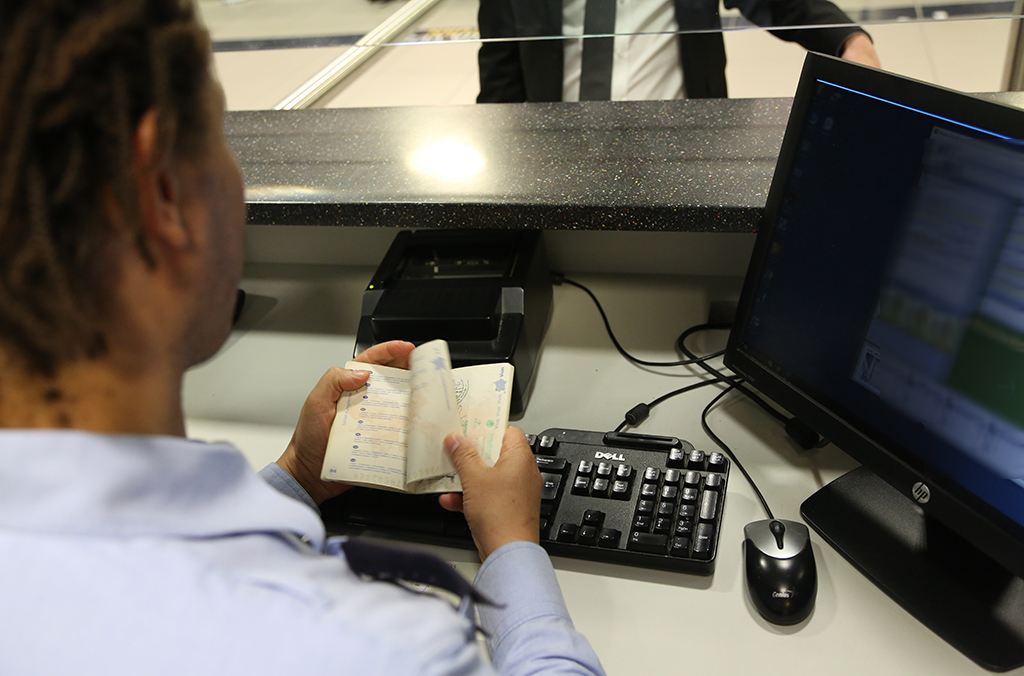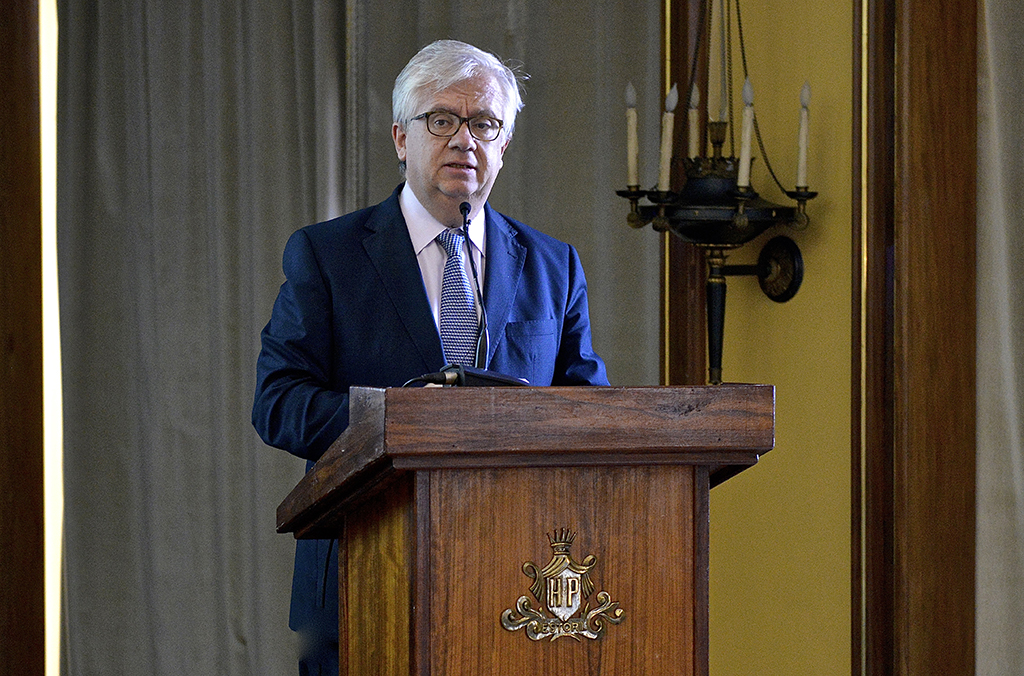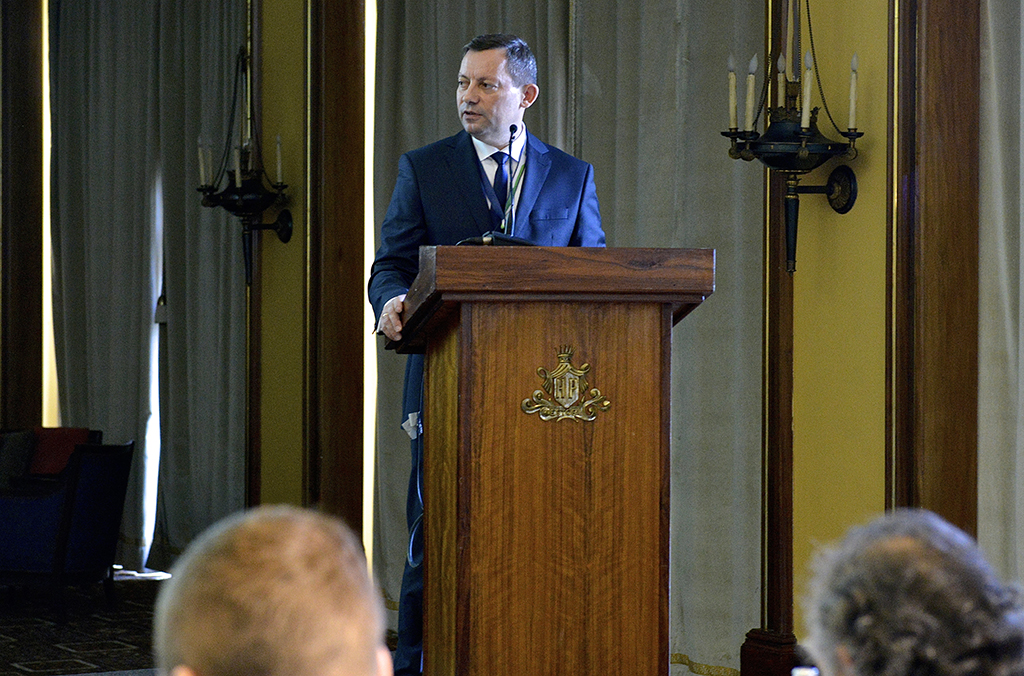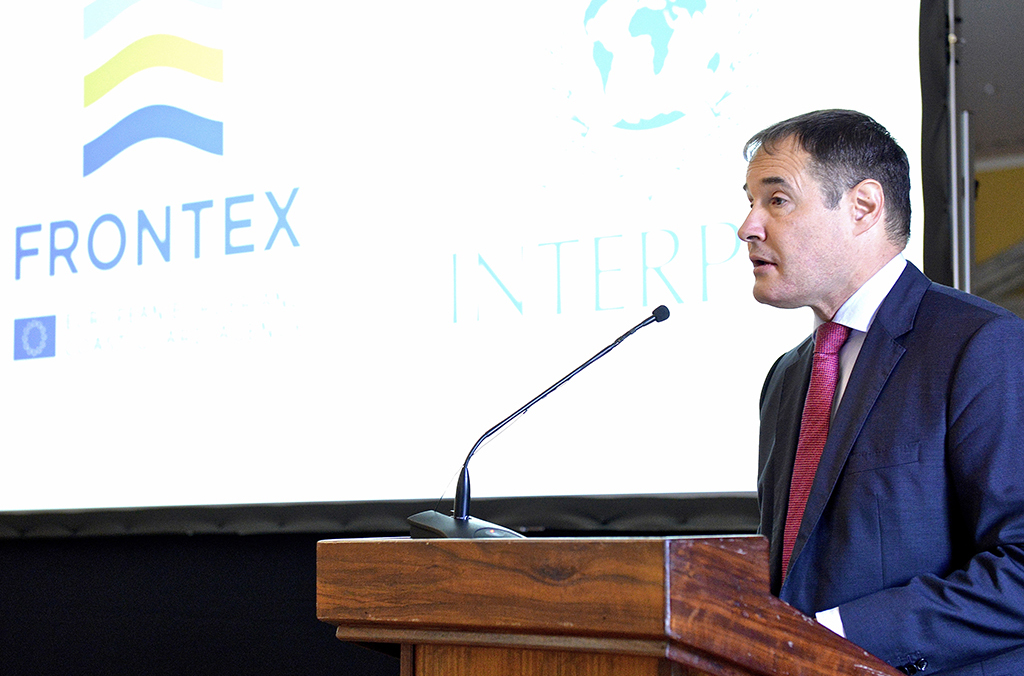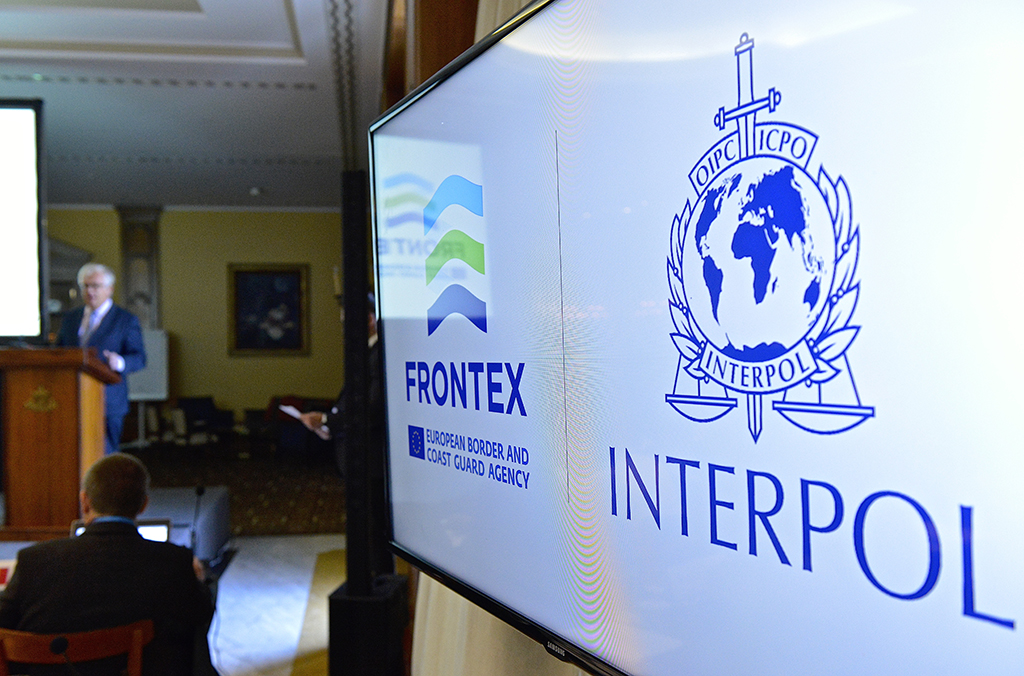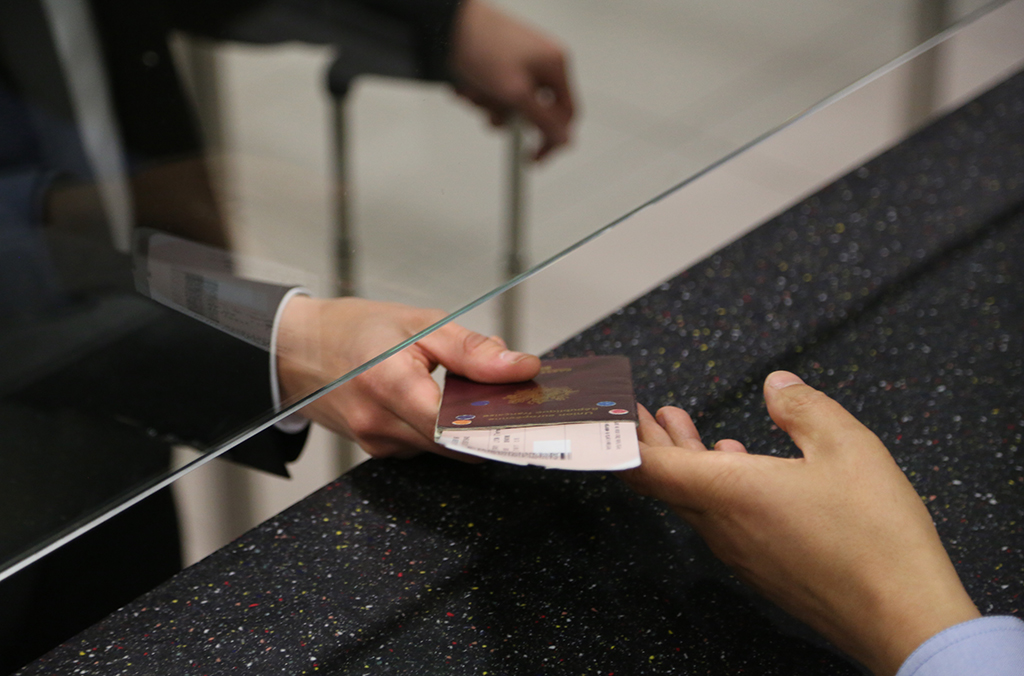ESTORIL, Portugal – INTERPOL and Frontex are enhancing their collaboration to strengthen the ability of police and border officers to authenticate travel and identity documents.
With increased mobility of people and goods across borders also facilitating the movement of criminals, INTERPOL and Frontex will leverage and increase international cooperation between border control and law enforcement authorities to tackle the global security challenges posed by document fraud.
The two organizations will expand their respective Dial-Doc and Quick Check Cards initiatives to improve frontline document checks and tackle document fraud, which facilitates serious crimes such as human trafficking and terrorism.
Speaking at the first joint INTERPOL-Frontex conference on border management as part of the enhanced cooperation between the two agencies, Portugal’s Minister of Home Affairs Eduardo Cabrita, said: “Fraudulent documents threaten national security and the free movement of persons. To fight this threat, the quality of identity and travel documents has to be raised even more, national systems of entry and exit have to be further developed and integrated, and international cooperation has to be strengthened.”
Frontex Executive Director Fabrice Leggeri said: “Document fraud is an enabler of terrorism and other types of organized crime such as trafficking in human beings and people smuggling. The effective control of travel and identity documents at borders is a fundamental component of internal security and successful migration management.”
INTERPOL’s enhanced partnership with Frontex falls within the framework of the world police body’s Border Management programme which sees effective border security as an essential part of combating transnational crime.
Cyril Gout, INTERPOL’s Assistant Director of Forensics and Police Data Management, said : “Cooperation in the area of fraudulent travel documents is critical as travel and identity document misuse undermines national and international security by supporting the clandestine transnational movement of criminals, foreign fighters, and terrorists. Cooperation is vital to enhance national capabilities on frontline document checks.”
In 2017 alone, INTERPOL participated in five joint operations with Frontex. These resulted in more than one million searches against INTERPOL’s global databases and generated 35 positive hits for fugitives, terrorists, and other known serious criminals.
With INTERPOL’s databases now queried almost 200 times every second, it continues to push for greater expansion of its I-24/7 secure police communications system so as to reach the frontlines of policing across the globe, ensuring the timely availability of police information during border controls.




